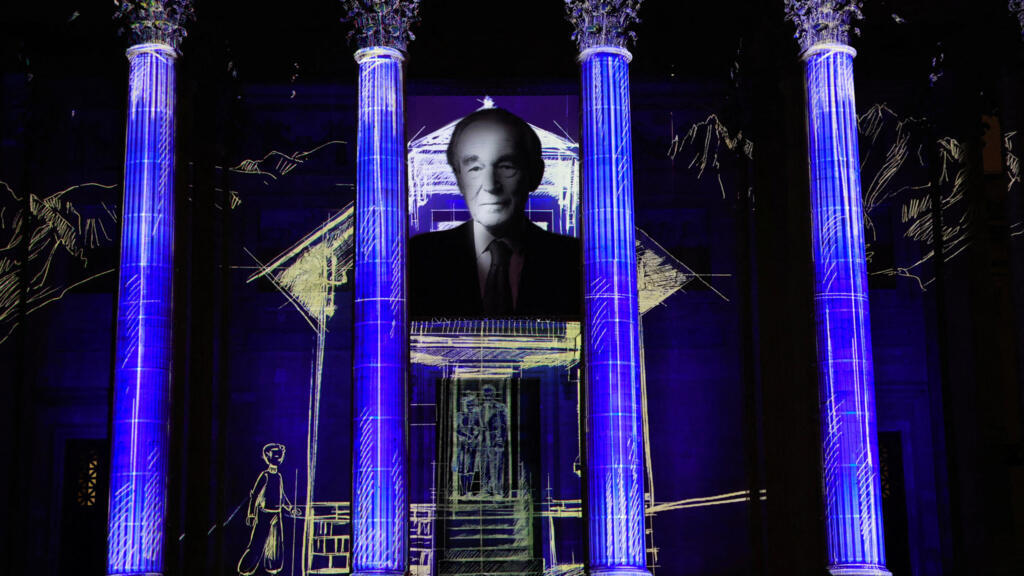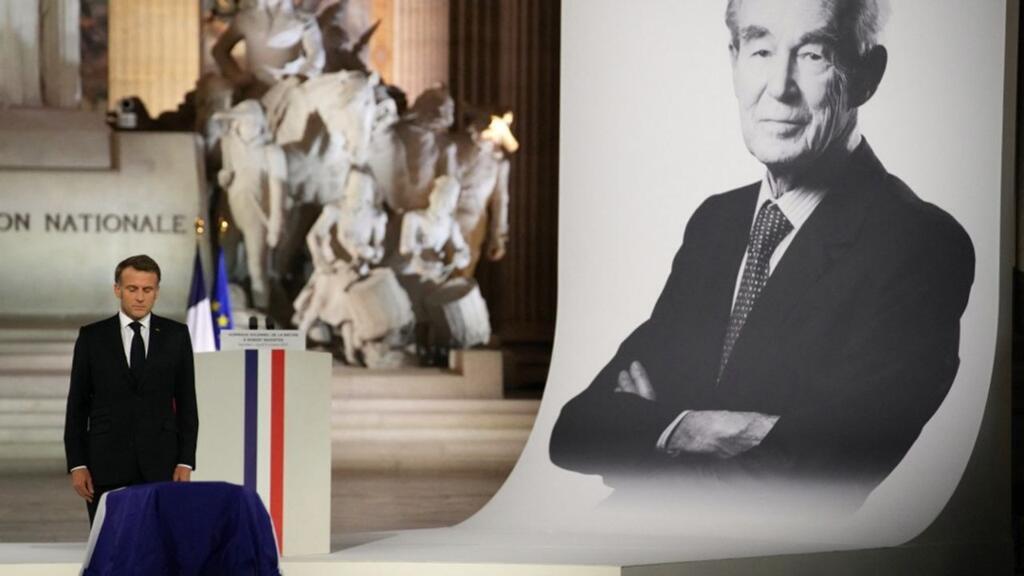
Robert Badinter, the justice minister who ended the death penalty in 1981, was inducted into the Pantheon in Paris on Thursday as France paid tribute to his lifelong fight for justice – with President Emmanuel Macron praising the abolitionist's “essential and unfinished battles”.
Thousands of people lined the Rue Soufflot to applaud as officers carried a symbolic coffin draped in the French flag into the national mausoleum.
The casket contained Badinter’s lawyer’s robe, a copy of his speech against capital punishment and several books, his wife told TF1 television.
Inside the Pantheon, Macron said Badinter’s voice would continue to inspire France’s fight for equality and human rights.
“As he enters the Pantheon, we hear his voice advocating for these great, essential, and unfinished battles,” he said, citing “the universal abolition of the death penalty”, the fight against anti-Semitism and the defence of the rule of law.
“These are causes that transcend centuries,” he added.

Badinter’s remains will stay in the cemetery of Bagneux, south of Paris, where he was buried after his death in 2024 aged 95.
His legacy also includes a 1982 law to decriminalise homosexuality.
A life dedicated to justice
The son of Jewish parents, Badinter lost his father in a Nazi concentration camp during World War II. He became one of France’s most respected lawyers, defending clients that others refused to represent.
His campaign against capital punishment began in 1972 after one of his clients, Roger Bontems, was executed for his role in murdering a nurse and a guard during a prison escape.
He was haunted by his failure to save Bontems when, five years later, he convinced a jury not to execute Patrick Henry for the murder of a seven-year-old boy – a verdict that made him widely hated at the time.
Robert Badinter, who ended France's guillotine era, enters the Panthéon
“Guillotining is nothing less than taking a living man and cutting him in two,” Badinter argued.
He saved six men from execution during his career, earning both death threats and admiration.
When he became justice minister under President François Mitterrand in 1981, Badinter made abolition his first priority.
Parliament approved the bill on 9 October that year. Until then, capital punishment in France was carried out by beheading with the guillotine – a practice dating back to the French Revolution of 1789.
The last person executed in France was Hamida Djandoubi in 1977, a Tunisian immigrant convicted of murder.
After ending capital punishment, Badinter urged parliament to decriminalise homosexuality, a reform passed in 1982.
Tributes and condemnation
At the Pantheon, magistrates, musicians and several former prime ministers joined the tribute.
The facade of the building was lit up with a photo of Badinter and the words: “French justice will no longer be a justice that kills. The death penalty is abolished.”
Singer Julien Clerc performed “L’assassin assassiné” (Murderer Murdered), a song long linked to Badinter’s campaign against executions. Former president François Hollande and members of Badinter’s family attended the ceremony.
France pays tribute to Badinter, minister who won fight to end death penalty
Earlier in the day, local officials said Badinter’s tomb in Bagneux had been defaced with blue graffiti reading: “Eternal is their gratitude, the murderers, the paedophiles, the rapists.”
Macron condemned the act on social media, writing: “Shame on those who wanted to sully his memory. The republic is always stronger than hate.”
Paris Mayor Anne Hidalgo said she had filed a complaint with prosecutors to find and punish those responsible.
Politicians across the spectrum also condemned the vandalism.
Badinter now joins other national heroes in the Pantheon, including writer Victor Hugo, Resistance fighter and singer Josephine Baker and Simone Veil, who led the fight to legalise abortion in France.







